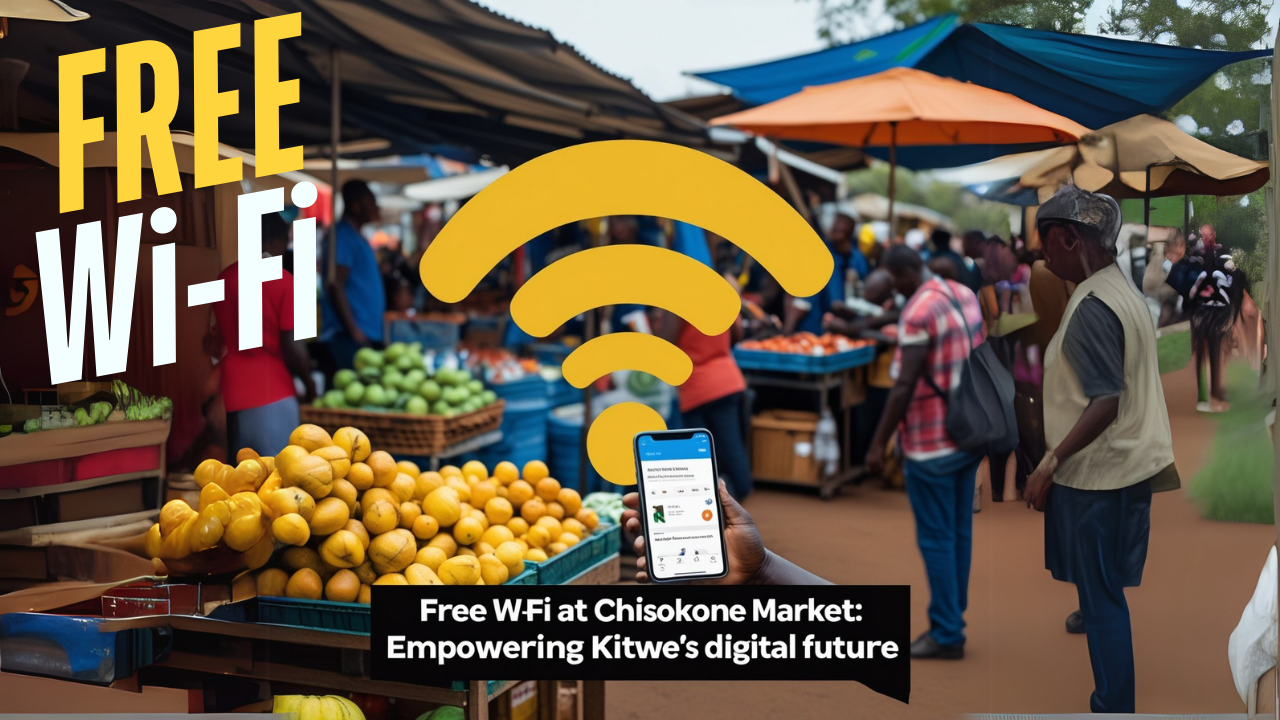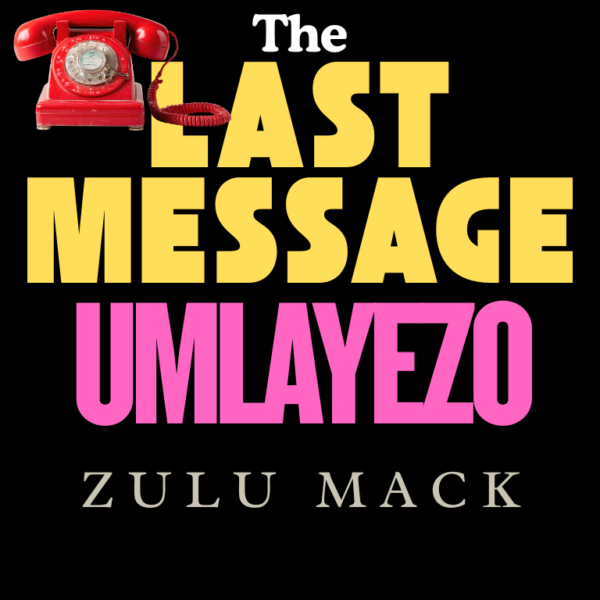A Game-Changer for Kitwe’s Digital Economy
The Significance of Free Public Wi-Fi Access at Chisokone Market in Kitwe, Zambia
The introduction of free public Wi-Fi at Chisokone Market in Kitwe, Zambia, marks a transformative milestone in the country’s journey toward digital inclusion and economic empowerment. This initiative, part of the broader ZamFree National Public Free Wi-Fi program, is not just a technological advancement but a symbol of progress, bridging the digital divide that has long hindered access to information and opportunities for many Zambians. To fully appreciate the significance of this development, it is essential to reflect on the historical context of internet access in Kitwe, understand the immediate and long-term benefits of this initiative, and explore its potential to reshape the socio-economic landscape of the region.
Historical Context: From Limited Access to Digital Liberation
In 2010, when Kitweonline.com was launched, accessing the internet in Kitwe was a luxury reserved for those who could afford it.
“It is getting easier to surf the internet all the time. A time will come when the majority of Kitwe residents will be able to freely access information on their own personal devices, in their own time. This is not the case at the time of writing, but the future is looking bright. It is a privilege to be part of this exciting world-wide internet revolution.” – KitweOnline, 15 May, 2010
Residents had to travel to the town center, pay for access, and endure painfully slow connection speeds. Waiting 20 minutes for an email to download was not uncommon, and the idea of free, high-speed internet in public spaces seemed like a distant dream.
This limited access to digital tools and resources disproportionately affected small-scale traders, students, and low-income earners, who were unable to leverage the internet for business growth, education, or personal development.
Fast forward to 2024, and the landscape has dramatically changed. The launch of free public Wi-Fi at Chisokone Market, one of Zambia’s largest and busiest markets, represents a leap forward in digital accessibility. This initiative is part of the Zambian government’s broader strategy to achieve 80% internet penetration of the whole country by 2026, as outlined in the Eighth National Development Plan (8NDP) 57. By targeting key public spaces like markets, bus stations, and schools, the government aims to ensure that no one is left behind in the digital revolution.
This initial phase, introduced in November 2024, saw the simultaneous launch of Free Wifii at three locations: Lusaka Intercity Bus Stop, Kapiri-Mposhi Bus Stop and Kitwe’s Chisokone Market.
Immediate Benefits for Traders and Consumers
Chisokone Market is a bustling hub of economic activity, home to thousands of traders and vendors who rely on daily transactions to sustain their livelihoods. The introduction of free Wi-Fi at the market has immediate and tangible benefits for these individuals.
- Access to Online Marketplaces and Financial Services
With free internet access, traders can now connect to online marketplaces, expand their customer base, and explore new business opportunities beyond the physical confines of the market. This is particularly significant for small-scale entrepreneurs who previously lacked the resources to establish an online presence. Additionally, access to digital financial services enables vendors to manage transactions more efficiently, reducing reliance on cash and enhancing financial security.
- Improved Communication and Information Access
For travelers and consumers, free Wi-Fi ensures seamless communication and access to vital information. Whether it’s checking bus schedules, comparing prices, or staying connected with family and friends, the internet has become an indispensable tool for navigating daily life. This convenience not only enhances the overall market experience but also fosters a sense of community and connectivity.
- Time and Cost Savings
The ability to access government services and other online resources directly from the market saves traders and consumers valuable time and money. Instead of traveling to government offices or internet cafes, individuals can now complete tasks such as paying bills, applying for permits, or accessing educational materials from their smartphones or devices.
Long-Term Socio-Economic Impact
Beyond the immediate benefits, the introduction of free public Wi-Fi at Chisokone Market has far-reaching implications for the socio-economic development of Kitwe and Zambia as a whole.
- Empowering Small Businesses
By providing traders with the tools to grow their businesses, the initiative contributes to economic empowerment and poverty reduction. Access to online resources and digital financial services enables vendors to make informed decisions, improve their operations, and increase their income. Over time, this could lead to the formalization of many informal businesses, fostering economic stability and growth 310.
- Promoting Digital Literacy and Inclusion
The ZamFree initiative is not just about connectivity; it’s about equipping citizens with the skills and knowledge to thrive in the digital economy. By offering free internet access in public spaces, the government is creating opportunities for individuals to learn, explore, and innovate. This is particularly important for young people, who can use the internet to access educational resources, develop new skills, and pursue entrepreneurial ventures.
- Enhancing Government Service Delivery
The integration of the Zamportal, which provides access to over 320 government services, is a game-changer for public administration. By enabling citizens to interact with government agencies online, the initiative promotes transparency, efficiency, and accountability. This digital transformation is a critical step toward achieving Zambia’s Vision 2030, which aims to transform the country into a prosperous and competitive middle-income economy.
- Bridging the Urban-Rural Digital Divide
While the initial rollout focuses on urban centers like Kitwe, the long-term goal is to extend free Wi-Fi access to rural areas, where digital exclusion is most pronounced. According to the Zambia Inclusive Digital Economy Status Report 2022, 56% of rural residents lack access to the internet, compared to 47% of the overall population 514. By addressing this disparity, the government is laying the foundation for inclusive growth and development.
Challenges and the Way Forward
Despite its many benefits, the ZamFree initiative is not without challenges. Ensuring reliable connectivity, maintaining infrastructure, and addressing issues of digital literacy and cybersecurity will require sustained investment and collaboration between the government, private sector, and civil society. Additionally, efforts must be made to ensure that the most vulnerable populations, including women and people with disabilities, are not left behind in the digital revolution.
Conclusion
The introduction of free public Wi-Fi at Chisokone Market is a testament to Zambia’s commitment to digital inclusion and economic empowerment. By transforming a once-limited resource into a freely accessible tool, the government is opening doors to new opportunities for traders, consumers, and the broader community.
This initiative is not just about connectivity; it’s about creating a future where every Zambian, regardless of their background or status, can participate in the digital economy and contribute to the nation’s development. As we celebrate this milestone, it is important to recognize that the journey toward a fully connected Zambia is just beginning. With continued investment and innovation, the possibilities are endless. This is a significant and heart warming milestone in our country’s journey into the digital future.



